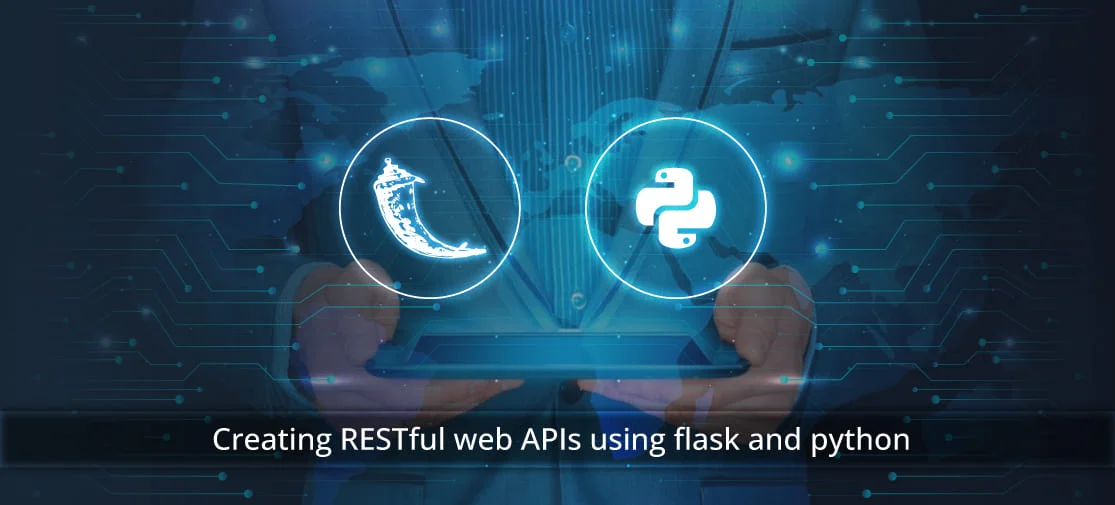Introduction
Every company needs to be updated as it’s a process to make your business more efficient and productive for which new applications are implemented in the existing software for which API (Application Programming Interface) increases the speed and where each functionality doesn't have to be written from scratch.
Therefore, when you have content that is automatically published and made available in different channels it increases its efficiency. Additionally, it can adapt to change through data migration and flexible in Web development services, but it’s quite different when it comes to the ASP.Net core.
What is web API?
In simple terms, WebAPI can be explained as an application user interface for web applications or for a web server as it uses HTTP Protocol to communicate between clients and web servers to have data access.
It makes a good choice as it’s not only a simple and lightweight service but it also follows MVC features making it more scalable and robust.
Moreover, API can be written in any programming language which can be in Java with the assistance of middleware or in Python, C, C++, and even on Ruby on rails as well.
API security in ASP.Net
As we know API is a process where software allows to interact or exchange of data with other components, where data are transmitted between servers and clients over a public network where the risk of data vulnerability increases. So let’s dive in and check out key strategies you can follow to secure the APIs in our ASP.Net Core applications.
Use API keys
API keys can be defined as unique identifiers that pass a request on each call to the API. The following code defines how to validate an API key.
[ApiController]
[Route("API/[controller]")]
public class DemoController: ControllerBase
{
private const string API_KEY = "ABCDE12345"; //This is your API key
[HttpGet]
public IActionResult Get()
{
var apiKey = Request.Headers["Api_Key"].FirstOrDefault();
if (apiKey != API_KEY)
return Unauthorized();
//Write your usual code here
return Ok("The API key is valid. Authenticated, successful."
}
}
API keys can be also used as an authentication for the user in the application.
Use cross-origin resource sharing
It’s also known as CORS which prevents unauthorised users from accessing your APIs from other domains. To activate CORS at the action level in an ASP.Net Core 7 application, by following the code snippet.
public class BookController : ApiController
{
[EnableCors(origins: "http://localhost:8095/",
headers: "*", methods: "*")]
public IEnumerable Get()
{
return new string[] {"Mastering C# 8.0", "Joydip Kanjilal"};
}
}
Use API versioning
One more aspect that improves your API security is by versioning your APIs. It permits you to update your API and phase out less secure versions without interfering with existing clients. You just need to install the ASP.Net API versioning package for NuGet and with the use of the MapToApiVersion attribute you can execute the following action.
[HttpGet]
[MapToApiVersion("3.0")]
public string Get()
{
return books;
}
Use logging and monitoring
Logging offers detailed information about your application behaviour whereas monitoring detects and identifies app failures. With the help of these aspects, you get a clear view of API usage and the security issues that are associated with your API. Moreover, you also gain the advantages of the built-in default logger in ASP.Net
public class DemoController: Controller
{
private readonly ILogger _logger;
public DemoController(ILogger logger)
{
_logger = logger;
}
public IActionResult Index()
{
_logger.LogInformation("Inside the Index action method");
return View();
}
public IActionResult Test()
{
_logger.LogInformation("Inside the Test action method");
return View();
}
}
Use rate limiting
Rate limiting is the key component to protect your API from the risk of vulnerabilities as it allows you to limit the number of calls to an API within the given time frame.
Token based Authentication
It’s an authentication security where a unique token is generated for each authenticated user. The token is generated once when the identity of the user is verified. It’s recommended to use JSON Web Tokens since it’s reliable in transmitting information ensuring that the information isn't destroyed or unauthorised.
Conclusion
As we know API is constantly evolving so it’s crucial to keep it highly secured by only storing those data which are in need and frequently cleaning up your old and unnecessary data. Following these mentioned factors in making your API highly secured.




